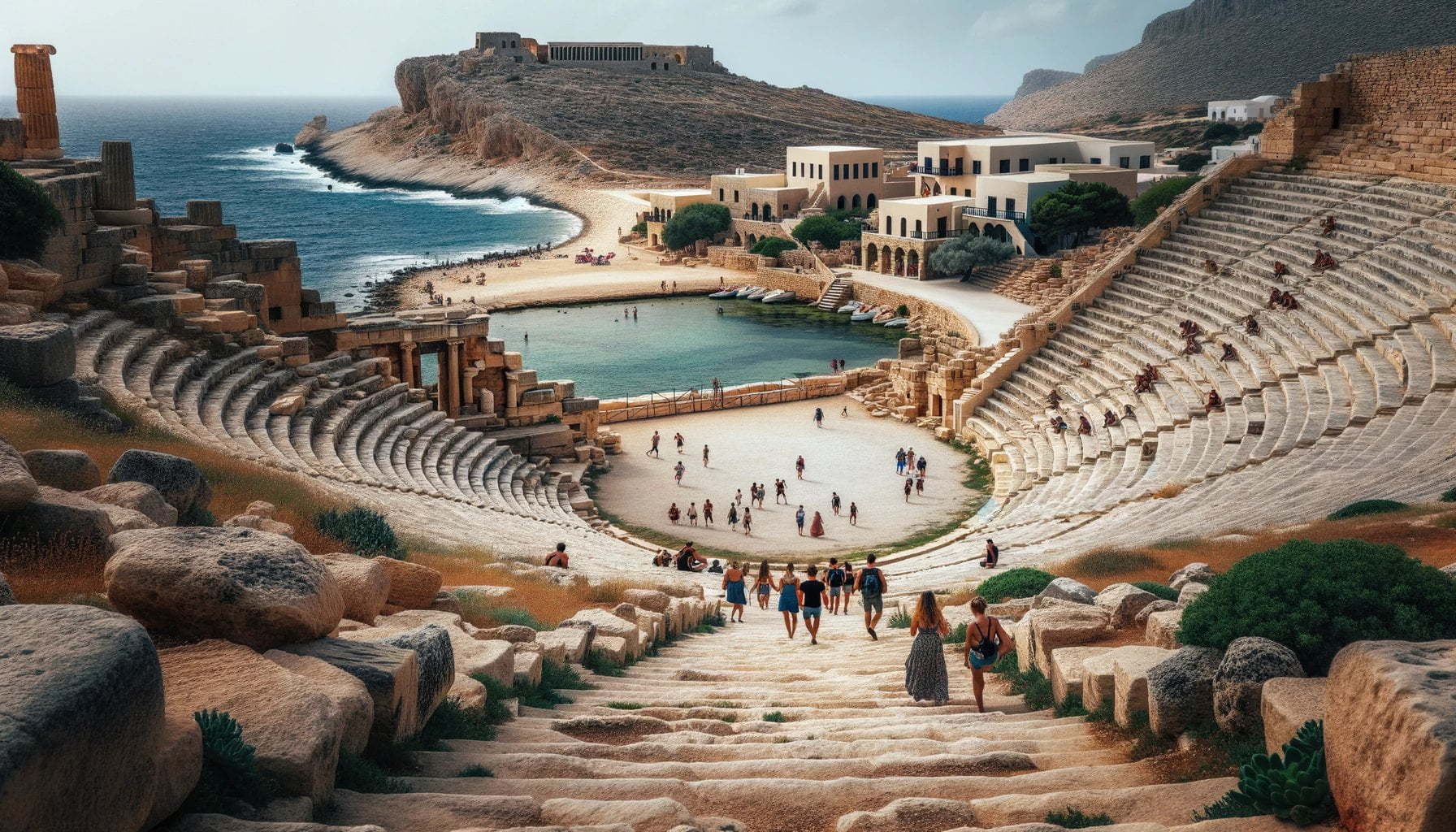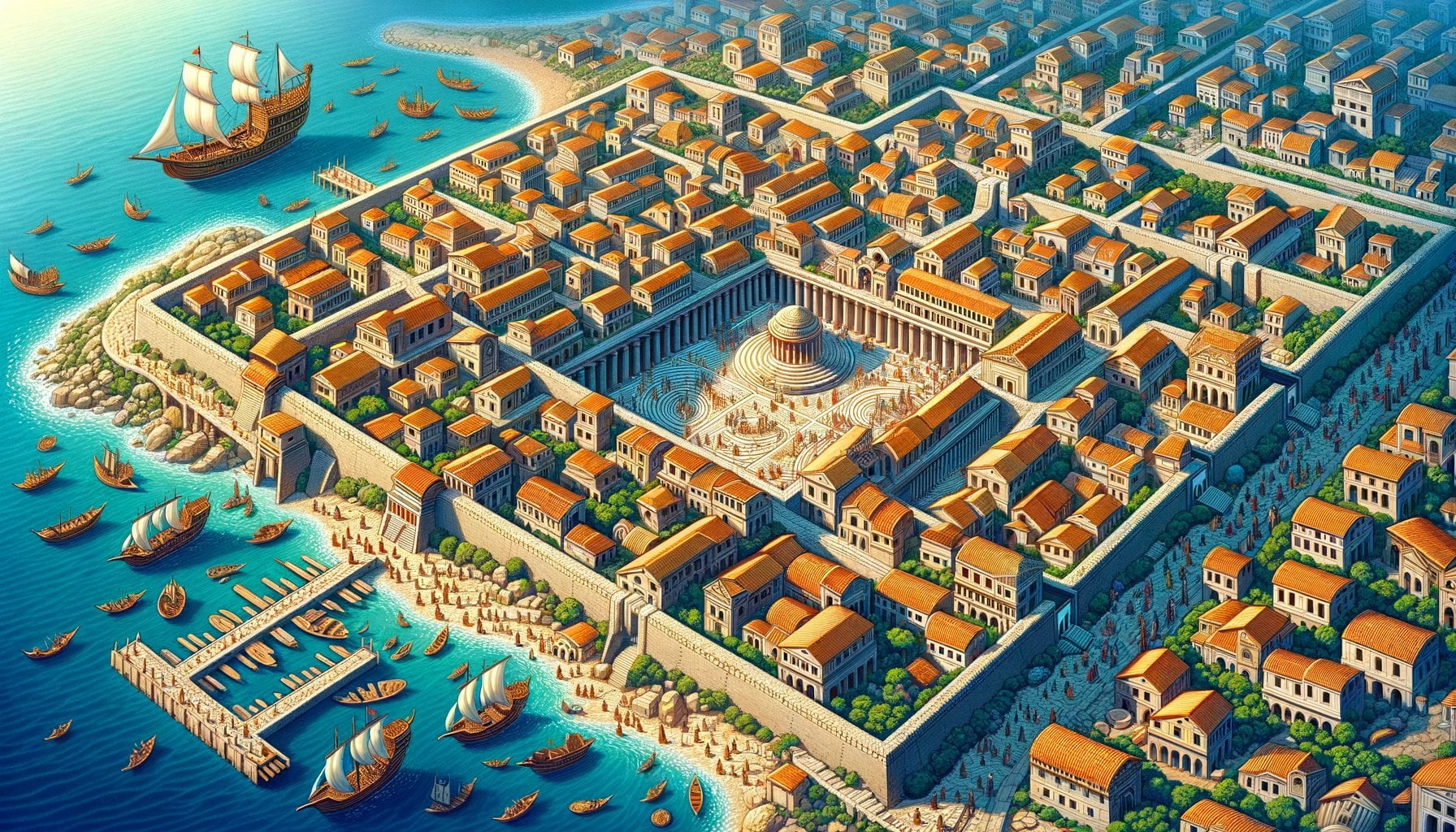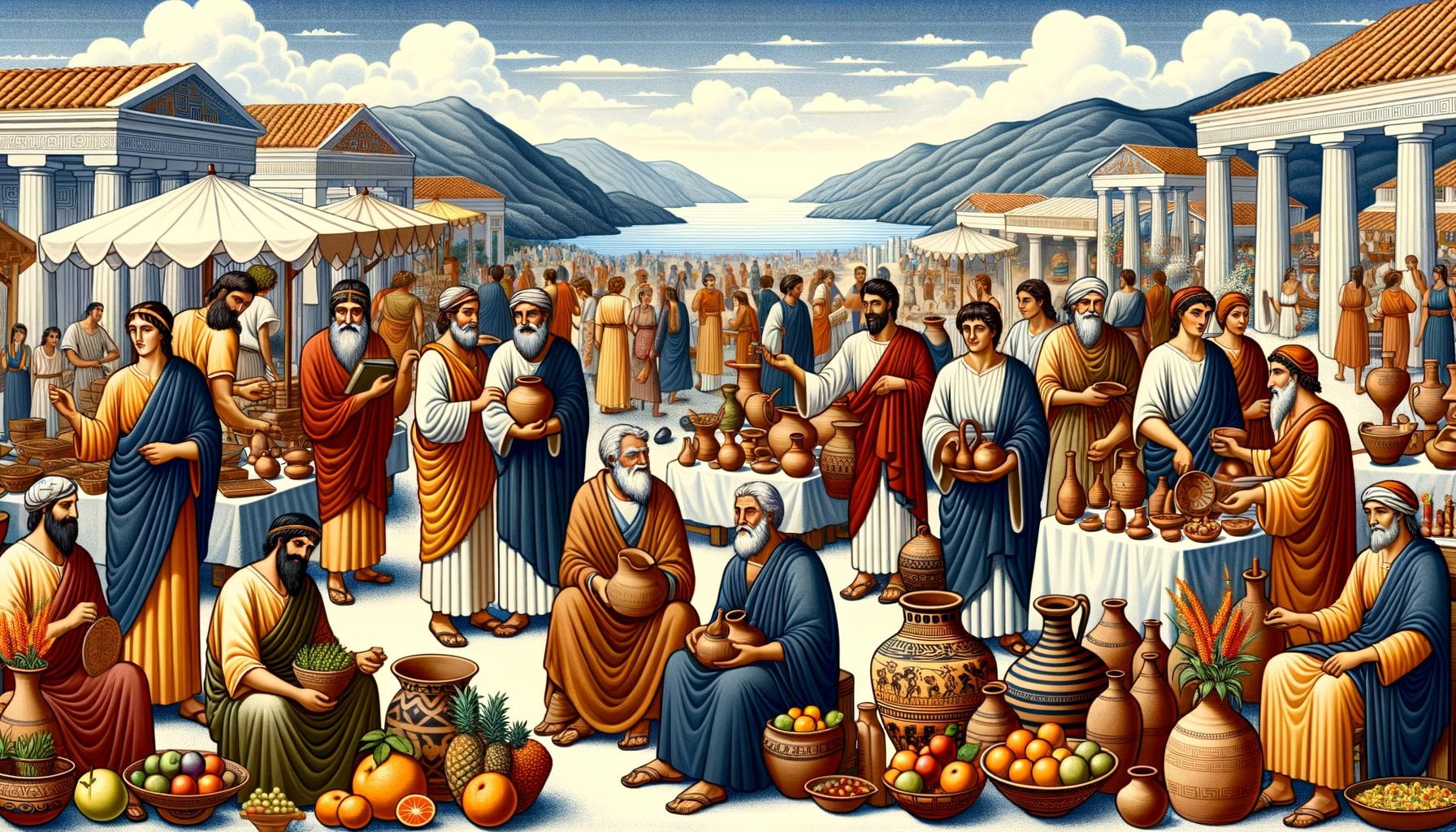If you’re fascinated by the wonders of the ancient world and the intricate web of civilizations that shaped our present, then prepare to embark on a captivating journey. In this article, titled “Unearthing the Legacy: Ancient Greek Colonies and Their Impact,” we delve into the realm of ancient Greece and unlock the mysteries of its colonies. Brace yourself for a riveting exploration as we unearth hidden narratives, analyze ancient texts and artifacts, and shed light on the profound influence these colonies had on Greek society. Join us as we unravel the lasting legacy of these settlements and unravel their enduring relevance in shaping our understanding of the ancient world.

Key Takeaways:
- The Greeks established colonies in various regions during the Archaic period, including Kyzikos, Pantikapaion, Olbia, Megara, Byzantium, Herakleia Pontike, Sinope, Miletos, Ephesos, Smyrna, Halikarnassos, Cyme, Zankle, Rhegium, Naxos, Syracuse, Massalia, Agathe, Emporion, Alalia, and Cyrene.
- These colonies were strategically established along the Aegean coast of Ionia and in Western Mediterranean regions.
- The establishment of Greek colonies began around 750 BC, with the Greeks expanding their settlements in different directions.
- Greek colonies played a vital role in spreading Greek influence and establishing long-distance trade networks throughout Europe.
- They facilitated trade, communication, and provided access to maritime resources due to their strategic coastal locations.
- Greek colonies were governed similarly to the motherland, and land was divided among colonists.
- The motivation behind establishing colonies was driven by strong economic growth and overpopulation in Greece.
- Greek city-states sought hospitable and fertile areas to support their growing population.
- The founding of colonies was a well-organized endeavor, with careful consideration of suitable locations for business advantages and security.
- The establishment of Greek colonies significantly expanded Greek culture, trade networks, and influence in the Mediterranean region.
- These colonies fostered economic growth and played a crucial role in the development of ancient Greece.
Colonies in Ancient Greece
Did you know that ancient Greece was not confined to its mainland? The Greeks, with their spirit of exploration and curiosity, established colonies in various regions during the Archaic period. These colonies played a pivotal role in shaping the ancient world and leaving behind a lasting legacy. So, let’s embark upon a journey of discovery as we unearth the significance of colonies in ancient Greece.
The Spread of Greek Influence
The establishment of colonies by the Greeks was not just a haphazard endeavor; it was a well-organized enterprise driven by the desire for economic growth and the overpopulation of the motherland. With increasing population, the Greek city-states sought new territories that could support their people. These colonies served as thriving hubs of economic activity, facilitating trade and communication.
Venturing beyond the boundaries of the Aegean coast of Asia Minor, the Greeks expanded their frontiers to regions such as Cyprus, Thrace, the Sea of Marmara, and the south coast of the Black Sea. This expansion brought Greek influence to Europe and established extensive trading networks. The strategic coastal locations of these colonies provided access to maritime resources, allowing the Greeks to prosper and flourish.
The Building Blocks of a Colony
Establishing a Greek colony was no simple task. It involved careful selection of a suitable location, considering both business advantages and security from raiders. Once a location was chosen, leaders were nominated to oversee the new settlement. These leaders had the responsibility of organizing the division of land among the colonists, much like the metropolis.
Impact: An Economic and Cultural Force
Greek colonies were more than just distant outposts; they were vibrant centers of economic growth and cultural influence. These colonies expanded Greek trade, allowing the exchange of goods, ideas, and beliefs across the Mediterranean region. Moreover, they fostered the development of new industries, enriching the economic fabric of ancient Greece.
The profound impact of Greek colonies can be seen in their enduring legacy. They preserved and spread Greek culture, contributing to the development of art, architecture, literature, politics, and philosophy. The colonies acted as melting pots of different cultures, inspiring a fusion of ideas and innovations.
Conclusion: Unearthing the Lasting Legacy
As we delve into the intricacies of ancient Greek colonies, we witness a tale of exploration, expansion, and cultural exchange. These colonies, established with strategic intentions, shaped the course of ancient Greek history. From the bustling trading ports of the Aegean coast of Ionia to the distant shores of the Western Mediterranean, Greek colonies left an indelible mark on the ancient world.
So, let us marvel at the rich tapestry of ancient Greek life, where colonies stood as testament to the adventurous spirit of the Greeks and their ability to forge connections and build communities across vast distances. Through the unearthing of their legacy, we gain a deeper appreciation for the enduring relevance of colonies in ancient Greece, forever interwoven in the fabric of history.
References:
[^1^]: “Greek Colonization.” World History Encyclopedia.
[^2^]: “Greek Colonization and its Impact on the Ancient Greek World.” World History US.
[^3^]: “Greek Colonisation.” Wikipedia.
[^4^]: “The Founding of Greek Colonies.” Greek Boston.
In ancient Greece, the legendary swords of ancient Greece were not just weapons, but symbols of power and honor. If you want to learn more about these fascinating artifacts, click here to explore our collection of swords of ancient Greece – Swords of Ancient Greece.
Discover the captivating stories of gods and heroes that shaped ancient Greece. From Zeus to Hercules, our collection showcases the legends that continue to inspire us today. Click here to explore the gods and heroes of ancient Greece – Gods and Heroes of Ancient Greece.
Step into the world of ancient Greece and discover the incredible variety of animals that inhabited the land. From majestic beasts to mythical creatures, our collection highlights the diverse wildlife of ancient Greece. Click here to explore the animals of ancient Greece – Animals Ancient Greece.
Boxing in ancient Greece was more than just a sport; it was a fierce display of strength and skill. If you want to delve into the competitive world of ancient Greek boxing, click here to learn more – Boxing in Ancient Greece.
The poets of ancient Greece were the visionaries who captured the essence of the human experience through their timeless verses. Click here to discover the enchanting world of poetry in ancient Greece – Poets in Ancient Greece.
Main Locations and Characteristics of Ancient Greek Colonies
The ancient Greeks were known for their adventurous spirit and desire to explore new territories. During the Archaic period, from the 8th to 6th centuries BC, they established colonies in various regions, driven by factors such as economic growth and overpopulation. Greek colonies played a crucial role in spreading Greek culture and influence, facilitating trade and communication, and establishing trading networks. Let’s delve into the main locations and characteristics of these ancient Greek colonies.
Southern Mediterranean and Magna Graecia
One significant region where Greek colonies flourished was the southern Mediterranean and Magna Graecia. From 700 BC to 500 BC, Greek colonies in Sicily and mainland Italy multiplied, creating the area known as Magna Graecia[^1]. These colonies played a crucial role in spreading Greek culture and influence in the region.
Syracuse (Siracusa)
Syracuse, also known as Siracusa, was one of the notable Greek colonies in Magna Graecia. Settled by Corinthians in 733 BC, it became the second Greek city established on the island of Sicily after Naxos. The natives of Syracuse were generally welcoming towards the Greek settlers[^1].
Sybaris
Situated on the Gulf of Taranto in southern Italy, Sybaris was another important Greek colony in Magna Graecia. It thrived due to its strategic location and flourishing trade[^1].
Greek Colonies in the Western Mediterranean
The Phocaeans, known for their commercial activity, made significant contributions to the establishment of Greek colonies in the western Mediterranean[^1]. Their role in the expansion of Greek colonies in the region is mentioned by the historian Thucydides.
Impact of Greek Colonies
Greek colonies had far-reaching consequences for both the Greek city-states and the regions they settled in. These colonies introduced Greek culture, including art, architecture, religion, and diet, to the Mediterranean[^3]. They also strategically positioned themselves along coastlines to facilitate trade, communication, and access to maritime resources[^4].
In conclusion, ancient Greek colonies were located in regions such as the southern Mediterranean and Magna Graecia, with cities like Syracuse and Sybaris standing out. The Phocaeans played a significant role in establishing Greek colonies in the western Mediterranean. The influence of these colonies expanded Greek culture, fueled economic growth, and shaped the ancient world.
Key Takeaways:
- Greek colonies flourished in the southern Mediterranean and Magna Graecia, spreading Greek culture and influence.
- Syracuse (Siracusa) and Sybaris were notable Greek colonies in Magna Graecia.
- The Phocaeans made significant contributions to Greek colonies in the western Mediterranean.
- Greek colonies introduced Greek culture to the Mediterranean and strategically positioned themselves for trade and communication.
Sources:
[^1]: Greek Reporter – The Most Important Ancient Greek Colonies in History
[^3]: World History Encyclopedia – Greek Colonization
[^4]: ThoughtCo – Fast Facts About Ancient Greek Colonies
Economic and Cultural Impact of Colonies on Ancient Greek Society
Greek colonization in ancient times had a significant impact on Greek culture, particularly in terms of the economy, political thought, and cultural diffusion. The expansion of the Greek economy led to the colonization of lands on the Mediterranean and Black Seas, creating opportunities for economic growth and trade. The colonies also became centers of cultural exchange, allowing different peoples to access and embrace Greek art, religious cults, and the Greek alphabet. This article explores the various ways in which Greek colonization influenced ancient Greek culture.
Expansion of the Ancient Greek Economy
Greek colonization played a crucial role in the expansion of the ancient Greek economy. It provided Greeks with opportunities to establish colonies on the shores of the Mediterranean and Black Seas, which served as trading posts and helped them access new resources and markets. This led to increased wealth and economic activity, setting the stage for the Golden Age of Athens.
Development of Greek Political Thought
The establishment of Greek colonies had political implications for ancient Greece. As Greeks settled in these colonies, they formed self-governing communities, framed laws, and developed institutions to govern themselves. This process became the foundation for the development of Greek political thought and had a lasting impact on the political systems of the Greek city-states. In fact, it laid the groundwork for the birth of democracy in Athens.
Cultural Diffusion and the Spread of Greek Culture
The establishment of Greek colonies also resulted in the diffusion of Greek culture to the lands where colonies were established. These colonies acted as gateways through which different peoples of southern Europe and the Black Sea could access and embrace Greek culture. Greek art, religious cults, and even the Greek alphabet were eagerly adopted by many of these peoples.
The colonies became vibrant centers of cultural exchange, allowing the spread of Greek practices, mythology, language, and art. This cultural diffusion played a crucial role in shaping the identity and cultural heritage of ancient Greece and contributed to the lasting legacy of Greek colonies.
Key Takeaways:
- Greek colonization expanded the ancient Greek economy by establishing trading posts and accessing new resources and markets.
- The establishment of self-governing communities in Greek colonies laid the foundation for the development of Greek political thought and contributed to the political systems of the Greek city-states.
- Greek colonies acted as gateways for the diffusion of Greek culture, allowing different peoples to embrace and adapt aspects of Greek art, religious cults, and the Greek alphabet.
Sources:
- Humanities West. “Ancient Greeks: The Age of Expansion.”
Decline and Legacy of Ancient Greek Colonies
Ancient Greek colonies experienced a diverse range of outcomes in the centuries following their establishment. As the once flourishing colonies faced various challenges, their decline was inevitable. However, their legacy endured and left an indelible mark on the ancient world.
The Difficulties of Decline
Declining Economic Prosperity: One significant factor contributing to the decline of ancient Greek colonies was the waning economic prosperity. Over time, competition from other trading powers and changes in trade routes diminished the colonies’ economic significance. Additionally, confrontations with rival colonies or indigenous populations often resulted in economic setbacks and loss of resources.
Geopolitical Struggles: The geopolitical landscape of the Mediterranean was volatile, and the colonies found themselves entangled in the power struggles between various city-states and empires. Constant shifts in alliances and conflicts disrupted the stability of the colonies, impeding their growth and contributing to their eventual decline.
Internal Strife and Governance Issues: Like any society, internal strife and governance issues plagued the ancient Greek colonies. Factionalism, power struggles, and weak leadership frequently hindered their ability to function effectively and respond to external threats. As a result, the colonies were susceptible to invasion, decline, and eventual assimilation by other cultures.
The Enduring Legacy
Cultural and Artistic Influence: Despite their decline, ancient Greek colonies left an enduring legacy in terms of culture and art. The colonies acted as conduits for the diffusion of Greek culture, spreading Greek art, architecture, religious practices, and even the Greek alphabet. Through their interactions with indigenous peoples and cultural exchange, the colonies played a vital role in the formation of diverse and hybrid cultures in the Mediterranean and beyond.
Development of Political Systems: The establishment of self-governing communities in Greek colonies laid the foundation for the development of Greek political thought. The democratic principles and systems of governance that emerged in the colonies paved the way for the eventual birth of democracy in ancient Greece. The political systems of the colonies also influenced the political structures of their metropolises and contributed to the evolution of Greek city-states.
Intellectual and Scientific Contributions: Greek colonies were centers of intellectual inquiry and scientific advancement. Scholars and philosophers flourished in the colonies, making significant contributions to fields like mathematics, astronomy, and medicine. These advancements later influenced the development of Hellenistic civilization and the world beyond.
Heritage and Historical Awareness: The legacies of ancient Greek colonies live on through the preservation of historical records and archaeological remnants. The knowledge gained from studying these colonies provides valuable insights into ancient Greek society, politics, economics, and daily life. Today, the study of ancient Greek colonies continues to fuel scholarly curiosity and deepen our understanding of the complexities of the ancient world.
Key Takeaways:
- The decline of ancient Greek colonies was influenced by economic challenges, geopolitical struggles, and internal governance issues.
- Despite their decline, the colonies left a lasting legacy in terms of cultural and artistic influence, the development of political systems, intellectual and scientific contributions, and the preservation of heritage and historical awareness.

FAQ
Q1: What is Greek colonization?
A1: Greek colonization refers to the expansion of Archaic Greeks across the Mediterranean Sea and the Black Sea during the 8th–6th centuries BC. It involved the establishment of new colonies in various regions by Greek city-states.
Q2: Why did the Greeks establish colonies?
A2: The Greeks established colonies primarily due to strong economic growth and overpopulation in their homeland. They sought hospitable and fertile areas that could support their growing population and provide opportunities for trade and economic prosperity.
Q3: How were the locations for Greek colonies selected?
A3: The selection of colonization locations was based on business advantages and security from raiders. The Greeks aimed to find strategic coastal locations that would facilitate trade, communication, and access to maritime resources.
Q4: What role did Greek colonies play in shaping ancient Greek culture?
A4: Greek colonies played a crucial role in expanding Greek culture, trade networks, and influence throughout the Mediterranean and Black Sea regions. They introduced Greek culture, including art, architecture, religion, and the Greek alphabet, to the lands where colonies were established.
Q5: How did Greek colonies govern themselves?
A5: The system of governance in Greek colonies usually resembled that of the metropolis. They established self-governing communities, framed laws, and developed institutions to govern themselves. These communities laid the foundation for the development of Greek political thought and influenced the political systems of the Greek city-states.












